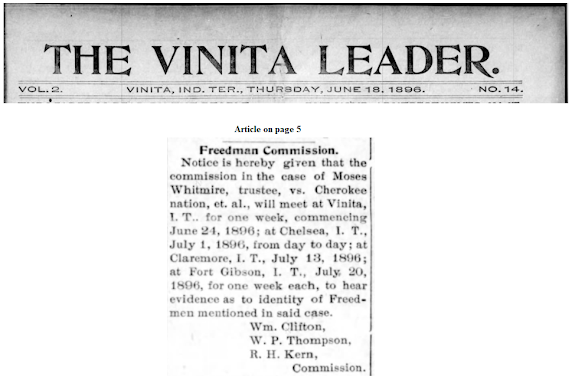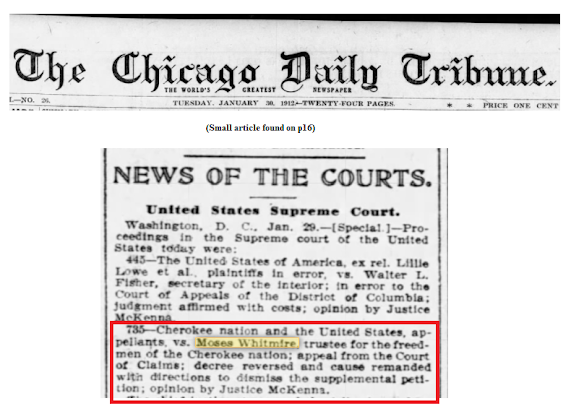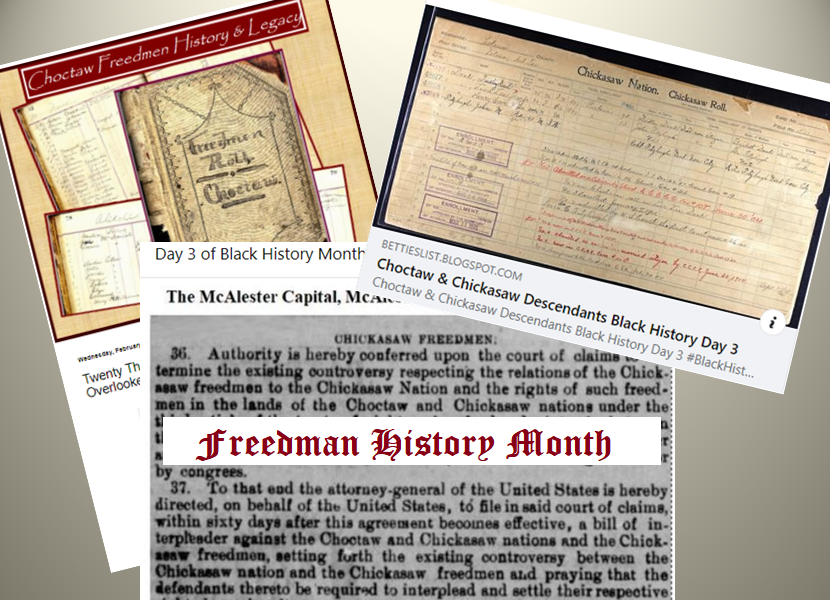When studying articles from the 19th century Indian Territory, anyone with an interest in Freedman history will note that numreous articles in the press appeared about the former slaves and the many struggles that they encountered. Some articles were about struggles for citizenship and equal rights and others made interesting references to schools and institutions established by and for Freedmen.
And one interesting case arose pertaining to funds set aside for Freedmen emerged in the Five Tribes, and one of them was the case of Moses Whitmire trustee for the Freedmen of the Cherokee Nation.
A special commission was appointed to represent the nation in a major suit known as Cherokee Nation v. Moses Whitmire, a case which began to cause much discussion in the late 1890s. The case involved not only specifically the rights of Cherokee Freedmen, but specifically the issue pertaining to funds that were to be set aside for Cherokee Freedmen.
The issue was that of $400,000 to be provided for freedmen, and from 4% to 10% to go to two attorneys from St. Louis---Robert H. Kern, and J. Milton Turner. Whitmire was an elderly man had been appointed as trustee for the freedmen, but soon charges were brought up against him about the funds and a mishandling of funds, and allegations that he had promised a larger amount of the money to the attorneys and allegations arose about mishandling of funds. Whitmire refuted this, and made his own statement. He pointed out that he was unable to read or write and that a document that he was said to have signed was not read or understood fully by him. An article from the St. Louis Globe Democrat carried his statement in a piece about the matter.
Ten years later the issue was still being discussed. by that time, Moses Whitmire had died but an interesting summary of the case appeared in a publication from Nowata, C.N.
And for Moses Whitmore the man, very little is known. In his younger years he was enslaved by Cherokee George Whitmire. By the time of the Dawes Commission, he was 70 years old, and he was most likely one who also came to the Territory during the Removal period. His mother's name was Peggy, also enslaved by Whitmire, and his father's name is not known. He resided in Hayden, in the Cooweescoowee District of the Cherokee Nation. As an elder his being selected as a trustee it is clear that with his being given such a position, he may have demonstrated other aspects of being a leader or man of influence among Freedmen.





